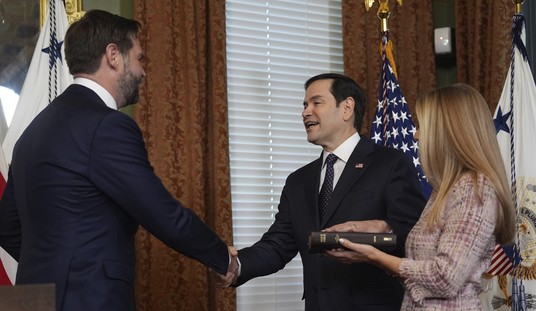For decades, China has acted as benefactor and big brother to the Stalinist dynasty in North Korea. At times, it has joined with the international community on sanctions to stop or curtail Pyongyang’s nuclear-weapons program, but for the most part has run interference on those efforts on behalf of the Kims. Now, however, China might be reassessing its relationship with Kim Jong-un after the stunning and amateurish assassination of Kim Jong-nam, whom China had hosted for years and saw as no threat to the Pyongyang regime. The Washington Post reports that the assassination has prompted a “sense of betrayal” in Beijing:
But behind the scenes there is a sense of shock and dismay in Beijing, officials and experts say: if indeed Kim Jong Nam was assassinated on the orders of the North Korean leader, it would be seen as an affront to the country that has afforded him protection for many years.
“China’s inner circle of government is highly nervous about this,” said Wang Weimin, a professor at the School of International Relations and Public Affairs at Fudan University in Shanghai.
“Kim Jong Nam’s assassination makes China more aware of how unpredictable and cruel the current North Korean regime is, as well as Kim Jong Un’s willingness to abandon China and sell it for his own benefit at any second.”
Simon Denyer reports that the official Chinese media has been cautious to treat the assassination from a distance, but that the unofficially official Global Times tabloid has teed off on the Kim regime:
If it is proven that Kim Jong-nam was indeed assassinated, many questions will need to be answered, with the most important one being, “Who was behind the assassination and why?” The world will have to rely on the Malaysian government to draw a formal and reliable conclusion once a thorough investigation into Kim’s cause of death has been conducted.
If the authorities conclude he was assassinated, the criminal act will definitely be condemned and scorned by the international community, including the Chinese. Regardless of how intense a country’s political struggle might be, there is no doubt that it should never rely on assassination methods as means for its advancement. Human civilization is now in the 21st century, and such a savage and outdated political device should be cast into the museums of history.
In the past, assassinations of political figures and celebrities that sporadically occurred in unstable areas were strongly condemned, and to this day not one single exception can be named.
Although a final conclusion has yet to emerge regarding Kim Jong-nam’s sudden death, speculation remains sharply pointed at Pyongyang. Such speculation is severely damaging to North Korea’s reputation on the international stage. It is sincerely hoped that the country will step up and provide answers to a world that right now can only patiently wait.
Denyer also notes that the timing is particularly bad for this assassination:
The assassination has also come at an uncomfortable time for China, just days after North Korea conducted a missile test and at a time when the new Trump administration has been asking China to do more to rein in its troublesome neighbor and ally.
It’s difficult to take the “betrayal” angle too seriously, though. After all, Kim Jong-un has had other family members killed off over the last five-plus years, including an uncle who got hauled off from a party meeting after an accusation of treason and quickly executed. Rumors have Kim Jong-un employing a number of cruel methods of execution, including mortar rounds, flamethrowers, and anti-aircraft guns. (The story that his uncle got fed to pigs alive is apparently an urban legend.)
Perhaps Beijing figured that Kim would keep his murders strictly in-house, where they could be safely ignored. Taking out family members in international airports precludes that possibility, especially now that Malaysia has apparently caught three people suspected of participating in the assassination. Now they have to wonder just how crazy Kim Jong-un might be, and whether it’s worth the risk of a nuclear exchange on the Korean peninsula to keep him around. That’s probably more on their mind than a sense of betrayal over targeting a man to whom China had provided refuge.
Their shock, shock that the Kim dynasty might not be altogether loyal to China — or sane — earns Beijing a Captain Louis Renault award:








Join the conversation as a VIP Member